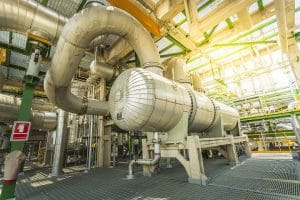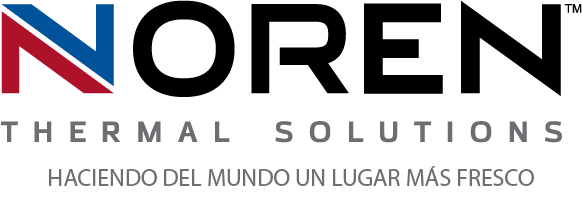 For companies that have already implemented advanced heat exchangers for their electrical thermal management needs, the advantages that have come with it seem obvious. Eliminating the need for solutions such as air conditioners and air compressors – the traditional answers to electrical cooling – has helped companies free up time, space, and capital, all while enhancing the efficiency of their thermal management systems.
For companies that have already implemented advanced heat exchangers for their electrical thermal management needs, the advantages that have come with it seem obvious. Eliminating the need for solutions such as air conditioners and air compressors – the traditional answers to electrical cooling – has helped companies free up time, space, and capital, all while enhancing the efficiency of their thermal management systems.
What makes them different from air conditioning?
Before heat exchangers, companies often had few options for keeping their electrical enclosures and equipment (such as control panels) properly cooled. Air conditioning was the most common and widely available option. Using chilled air to keep enclosures cool is a proven way of preventing electrical overheating, and because it was widely available, companies can easily find the right HVAC solutions for their needs. Heat exchangers also prevent overheating, but instead of using chilled air, they rely on methods of absorbing and transferring waste heat with the help of a cooling fluid.
What does heat transfer means?
Within a heat exchanger, transferring heat means utilizing an eco-friendly cooling fluid to absorb the heat that electrical components emit. The fluid then transfers the heat to a heat depository, such as a heat sink, that’s located safely away from sensitive components. After releasing the heat into the heat sink, the fluid loops back toward the heat source to continue the cycle of heat absorption and transfer.
How do heat exchangers remain eco-friendly?
The main difference between heat exchangers and more traditional thermal management solutions is the way in which they transfer heat instead of trying to chill it. This results in several additional advantages, such as the reduced need for energy to keep heat exchangers running continuously. This significantly lowers overhead costs, and also helps make operations more eco-friendly for companies in most industries.
What are the savings associated with heat exchangers?
Transferring heat doesn’t require as much energy as chilling air, which is one way in which heat exchangers help companies lower their overall operational costs. Heat exchangers can operate longer, often 24/7, and still use only a fraction of the energy that air conditioners and other options typically require. In addition, heat exchangers aren’t plagued by the frequent maintenance and repair issues that can hinder air conditioners’ productivity and cost companies revenue in downtime.
For answers to more questions about modern heat exchangers and thermal management, call Noren Thermal Solutions in Taylor, TX, at 866-936-6736.







